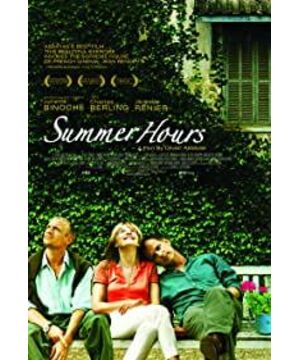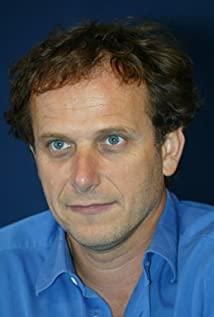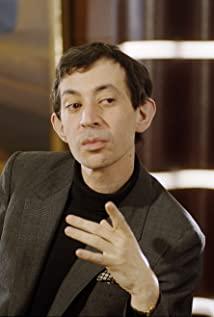A movie that I like very much, I think about it often.
It is rare to see a French director interpreting such a Hirokazu-eda-style story. In the past, most of the French family films I saw had a bit of French neurosis in them, funny and warm. And this movie gives me the feeling: restraint. There is calm and a touch of sadness as the camera rolls around. Choose to tell the story of this farewell in the summer, like a demise after a great enthusiasm.
The story begins with a family reunion. Under the bright sunshine, everything is peaceful and beautiful.
Hélène is an elegant old lady who has lived in the country all her life, guarding a room of art collections left by her brother Paul. The eldest son, Frédéric, lives and works in Paris and is a stubborn economist. The youngest son Jérémie works in China and plans to move his family to China, worrying about how to give his family a better life and buy a house in Bali. The younger sister Adrienne works in Japan, is about to get married in New York, is a successful designer.
The old house of the Hélène family is like a museum. The master's work is a desk cabinet for daily use, and the sculptures broken by children as children are randomly packed in plastic bags. The daily life of a French intellectual family is really extravagant and enviable.
After Hélène passed away, unexpectedly, only Frédéric stubbornly wanted to keep the house, while Jérémie and Adrienne were both under their own considerations and advocated selling. Jérémie even found a real estate agent early. In this kind of story, what remains, always bears more. As the person passes away, the spiritual connection falls apart. According to the general routine, I thought that there would always be a turnaround in the old house in the end, and the eldest son would turn the tide and keep the memories shared by everyone. But in the end, the old house was changed hands, and the collection was either donated (for reasonable tax avoidance), or sold. Is it not a wandering.
Hélène foresaw this first, and even told Frédéric what had happened.
It was as if Hélène sat alone in the dimly lit room on the night when the children had left the old house in a hurry, with only her old servant accompanying her. She said, “They grow up with their own lives and stories, and many things will disappear with me: moving memories, secrets that can’t be told, stories that no one is interested in. But there are houses, and Leftovers. Hopefully these don't become a burden to them. Anyway, that's Paul's wish." Paul was her secret lover.
Frédéric seems to be the one trapped. He couldn't accept that his mother's lifelong treasure was sold away, and he couldn't accept the almost indifferent rationality of his younger siblings. In the adult world, even expressing emotions has become a luxury. Emotional changes rarely appeared on this middle-aged man's face. Facing his mother's explanation, he had no choice but to accept it. The grief of losing his mother could only be vented through the sound of the car brakes; when he picked up his daughter who was stealing marijuana from the police station, he only expressed his anger by slamming the door. What is he supposed to do with these? I can only help to count the old things and say goodbye to all the memories.
With the death of the bond person, these objects have become works of counting, numbers on checks, and exhibits in museums. I will never go back to the old house again.
It's hard not to be touched by this irresistible feeling.
I thought of my grandmother's old house. The third floor was dedicated to stacking sundries. It was full of treasures, including rattan mats, quaint wooden cabinets, old knob TVs, ancient food stamps and coins. Every time I go up, it seems like a big adventure. Because few people come, there is the smell of wood that has been stuffy all year round in the air, and when you walk around, a touch of dust is scattered. The loquat tree in the corner of the backyard, I watch it bear fruit every year; the two pine trees in the vestibule, when it snows, I will build a snowman under the tree. Now they have all been felled, leaving only mottled walls and mounds. Every plant, every tree, every thing, everything is empty.
When I moved and packed my belongings, I picked up one and put it down. I always felt that this was also a memory, and that was also a story. In the eyes of others, it is just a useless old thing. Only you remember, what's the point?
In addition to people, the director also focuses on objects—those artistic treasures.
According to the film information, this film was specially produced to celebrate the 20th anniversary of the Musée d'Orsay. In the process of presenting the film, there is neither praise nor great generosity. Instead, he focused his attention on a family. The story is so well told. It gave me a new understanding of the collections in the museum. Most people always come for the most prestigious collections, and behind the door is the door. Little do they know that behind every collection, there are memories of a person, a family, and even a piece of history. Solidified, is it also a kind of demise.
In the second half of the story, Frédéric goes to the museum with his wife. A guided tour just happened to pass by, just in front of the desk in the old house. A man walked out of the line to make a phone call and made an appointment with a friend about the next itinerary. You see, for most people, visiting a museum seems like a routine, just passing by.
When he saw the desk, Frédéric talked to his wife.
- Don't you feel like you're incarcerated? - No, it can benefit more people to watch.
- They don't benefit from it, and they don't even look at it. - They pass by and stop to watch. This is a story that belongs to everyone.
Turning his eyes, he saw the vase.
- What's the story of these vases? It only makes sense to arrange flowers in the vase in the living room under natural light, otherwise it will appear desperate and dead.
- Nonsense, painting is not the same.
There was a pair of that precious vase, but there was only one in the museum, and the other was given by Frédéric to a loyal old servant of the family. The hostess loves flowers, and "a vase without flowers means death". The vase in the museum, sealed in the beautiful window, has lost its vitality. Those who passed by in a hurry listened to some stories wholeheartedly, and then left in a hurry. Beautiful paintings, bought by the upstarts and hung in prominent places, are surrounded by metal frames and shutters. And after the people and things that are attached to things dissipate, no matter how precious they are, they are nothing but ordinary.
It's not just people who are empty, there are also things that are with people.
Although it is a movie from eleven years ago, it seems to be about the things around us.
Beijing's housing prices are still rising, and China and the United States have become the center of a new round of development in the world. In a world that is changing with generations as the annual rings, what we can witness and change is so grand and yet so few. There has never been an easier time for migration or change to take place. Eternity and disillusionment no longer seem to be absolute binary oppositions. And the only thing that keeps flowing is time. The stories of artists can still be preserved in the exhibits of the museum forever; and the stories of ordinary people, in addition to being passed down from generation to generation, often cannot escape the fate of forgetting. Thinking of when I took Ma Yuan's class as an undergraduate, the teacher left an assignment called my family history, and asked myself to investigate my family story. Thinking about it now, I am very impressed. It would be good to be able to leave a little trace in the world.
There are two deaths in a person's life, one in the physical sense and one in the forgotten.
In the scene at the end of the story, Sylvie, a troubled girl from the Frédéric family, and her friends meet at the ancestral home: music, beer, a party for young people. The old house seems to be doing its best to come alive. This is a connection between the old and the new, and the stories seem to be alternated and continued. However, Sylvie still remembered. She told friends about her childhood stories, about her grandmother's paintings, emotional parts, and shed tears.
They went into the distance. The story ends with bright music.
No matter how much remembrance is, it is only the past. For the present, it is nothing more than that, let the time go, and the past will not stay.
2019.7.31
View more about Summer Hours reviews











